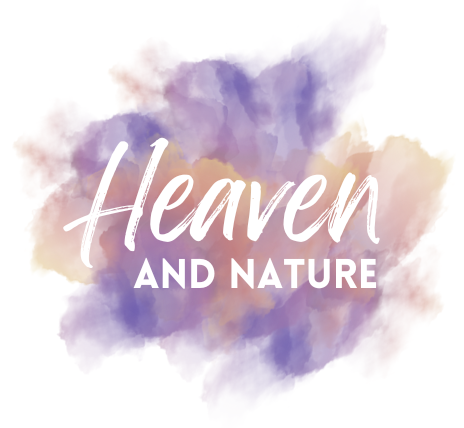There’s really just one drawback of visiting our most beautiful, popular natural resources: Everyone else is there, too!
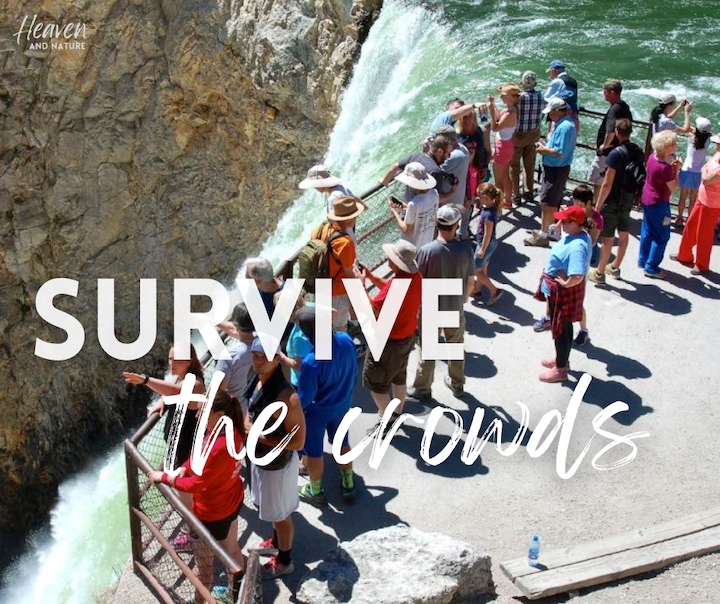
How do we visit these places like Yellowstone, Glacier, Banff, the Grand Canyon (the popular natural destinations in your own state or country) and survive the crowds?
We don’t want to not go, because these places are certainly worth it. So how can we enjoy them despite the crowds—or even somehow beat the crowds?
There are strategic ways to do this. We’ll break it down into 9 ways to survive the crowds in the outdoors’ most popular places:
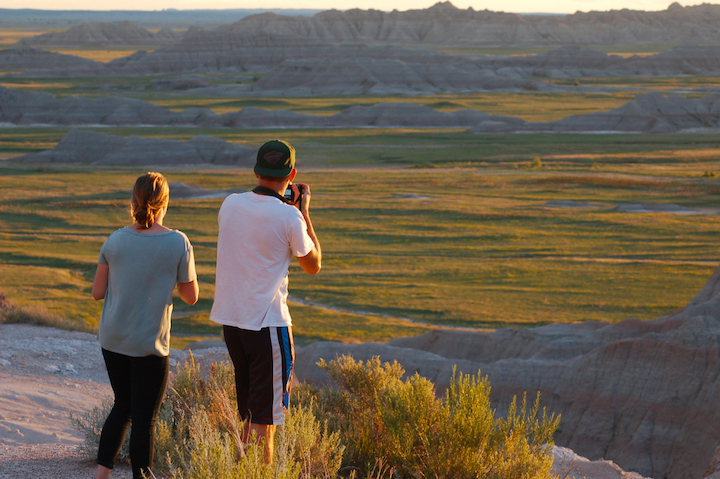
1. Go Off-Season
If you have the flexibility to visit outside of your destination’s busiest season, do it. For example, July and the first half of August almost anywhere are super busy because that’s when most families can take summer vacations. The kids are out of school, the weather’s good, etc.
Avoid holidays, long weekends and school break times if at all possible. More people will be at these great destinations during those times.
That’s not always possible, especially if you work in the school system! If you choose to or have to go during peak season, keep reading…
2. Include Out-of-the-Way Destinations Into Your Itinerary, Too
This is a strategy we’ve used as a family so we’re not in crowds 100% of the time. It gives us a welcome break, making the crowd times more mentally manageable!
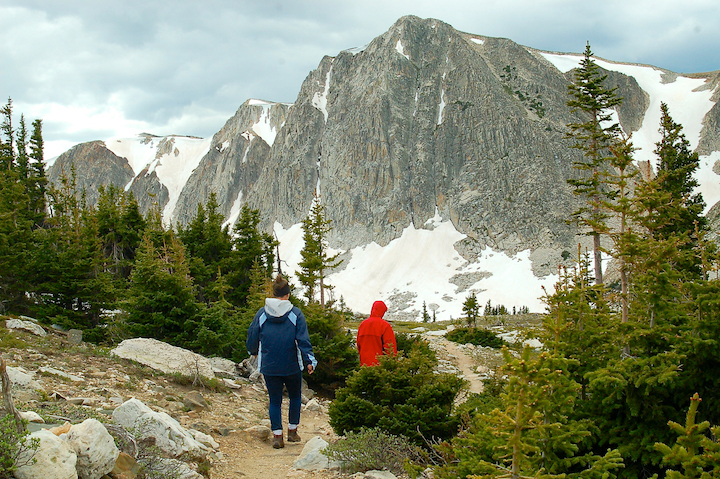
Here are a couple examples:
On one trip to Yellowstone and the Tetons, we spent a day on the way home in the Snowy Range Mountains of southeast Wyoming. After being with thousands of people at the Big Parks for over a week, it was so refreshing to see only a handful of them on our hike in the Snowies. And here’s the catch—it was just as beautiful!
We’ve stayed in the Bighorn Mountains in north central Wyoming a couple times on family trips. We’ve enjoyed super camping and hiking there with a tiny fraction of the crowds that are in the national parks just a couple hours away. In fact, most of the other campers were locals.
There are many, many beautiful places that aren’t well-known at all. Do some research about the area you’re headed and you’ll come up with some great ideas.
3. Continue Past the “Main Event”
Another thing we’ve found is: while there may be a thousand cars in the parking lot and all the people jamming the main attraction and visitor center—very few of them make it beyond that initial attraction.
A great example is Yellowstone’s Grand Canyon. The header photo at the top of this post was taken at the brink of the falls. People stream there non-stop—and it’s amazing…I’m glad we went.
But a short drive down the road you can access a trail that takes you to several other vantage points like this one:
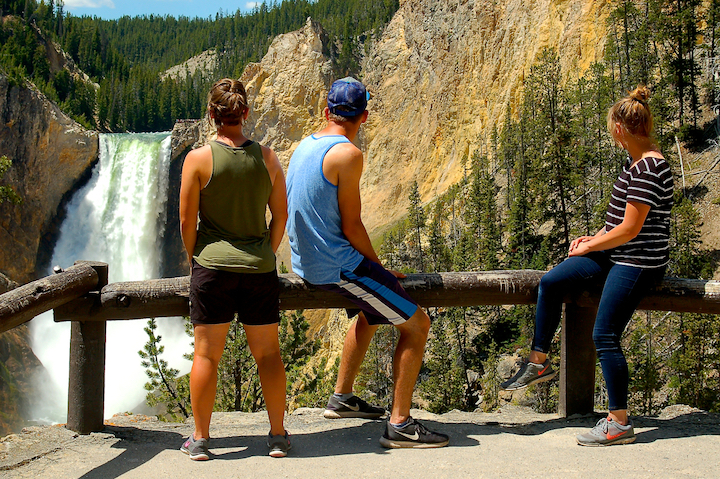
We met fewer than a dozen other hikers on this trail. And what a spectacular view of the falls!
I discovered this in several state parks in my home state of Minnesota, too. I’ll take Gooseberry Falls State Park as an example:
On any given summer day, the parking lot at Gooseberry will be crowded to overflowing. The Visitor Center and Middle Falls area will be packed with people, especially on a nice hot day. And for good reason—the falls and park are gorgeous and the water feels great!
But walk downstream a ways, cross the foot bridge and hike the trails on the other side of the river and you’ll meet very few people. You’ll have wonderful views of the falls from there, too.
Most people just don’t bother going much beyond the main event.
4. Start Early or Wait Until Later
This is something every ranger will tell you in every popular park. Just like there are rush hours for traffic in cities on weekdays, there are “rush hours” for parks and natural attractions—usually mid-morning to mid-afternoon.
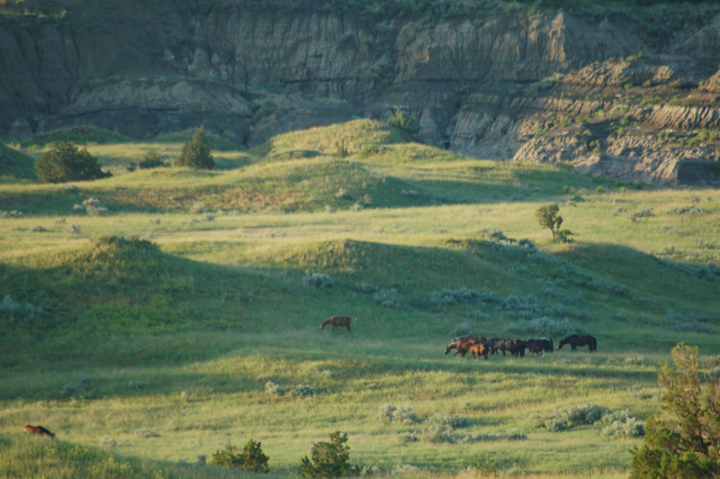
If you can get going early or wait until late afternoon or early evening when visiting the most popular attractions, you’ll likely encounter fewer people and better parking options.
5. See Bad Weather as Your Friend
It’s always wonderful when the weather cooperates on your outdoor adventures. But that’s what everyone thinks!
It may be to your advantage to put on your raincoats and venture out when others are hunkered down in their tents, campers or lodges waiting for the rain to stop.
6. Have a Plan
If there are several sights you and your family want to see, have a plan. Visit the busiest one first when it’ll be easier to find a parking spot and there are fewer people there.
I know some of you like to be spontaneous. Be as spontaneous as you like, but I promise you—if you have a plan, you may be able to deal with the crowds better! It’s the truth.
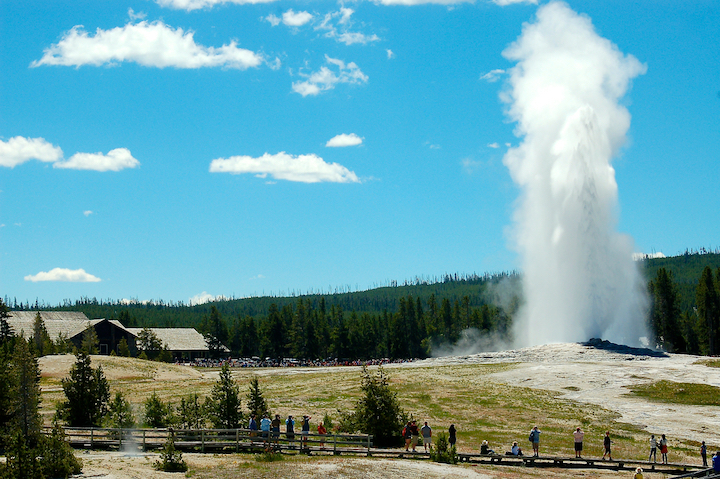
We did this the last time we visited Yellowstone. Old Faithful was high on our list, so we planned to make that our first stop. Instead of parking a quarter mile away (no joke), we were early enough to park in the second row.
7. Be Flexible
At the same time, flexibility should be your middle name when at these ultra-popular destinations.
One of the things our family does is have an idea of what we definitely want to see or do, with another list of things we’d love to see or do but won’t be heartbroken if we don’t get to them.
And once you get to your destination, you’ll likely be surprised by things you hadn’t known about before and decide to get some of them on the itinerary, too.
8. Put on Your Patience
There are places where you just can’t avoid the crowds, period. Here in the US, that means all our most popular parks: Yellowstone, Grand Canyon, the Smokies, etc. You simply can’t avoid the crowds in many places—after all, you can’t plan to see everything before 9:00 a.m!
So be patient. It may take awhile to find a parking spot, or the traffic might be busy in some areas. Or you’ll need to wait for a shuttle. It’s part of the deal.
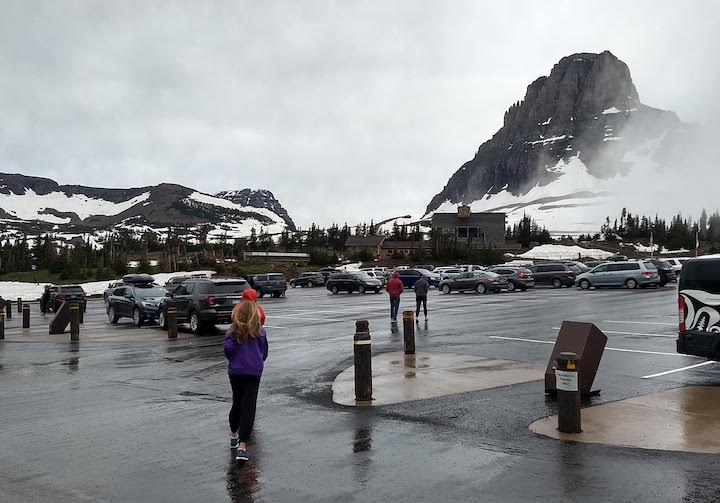
While you’re being patient…
9. Enjoy Meeting People from All Over the World
Take advantage of the international visitor community at these popular natural wonders. Meet people! When you hear another language or accent, ask them where they’re from and what they’ve liked best so far.
Not everyone is chatty, but most people are. I once had a wonderful conversation with a family from Beijing. Another one with a young man from the Czech Republic.
I love doing this when I’m traveling in the US. Even when I’m outside of Minnesota, I’m welcoming them to my home country.
I’ve met service employees from Romania and Poland (lots of American tourist centers employ international workers in work exchange programs—at least they did before covid!). It’s fun!
So, yeah, huge crowds at these places can be a bummer. But don’t let the crowds stop you from going. Just employ a little strategy, and the crowds don’t have to take the fun out of it.
Display the Fruits of the Spirit
Traveling to these crowded places provides exceptional opportunities to check your attitude and display the fruits of the Spirit!
Patience, as I already mentioned, is an obvious one. Kindness, peace, joy—they’re all applicable. And they’re all possible. 🙂
Here’s more…
- Niagara Falls: A North American Natural Wonder
- Going-to-the-Sun Road in Glacier National Park
- Enjoy God’s Magnificent Creation Often
- 11 Wonderful Things in Our Natural World - February 6, 2025
- What Kind of Exercise Is Best? - January 10, 2025
- 116 Verses in the Bible that Talk About Light - December 10, 2024
